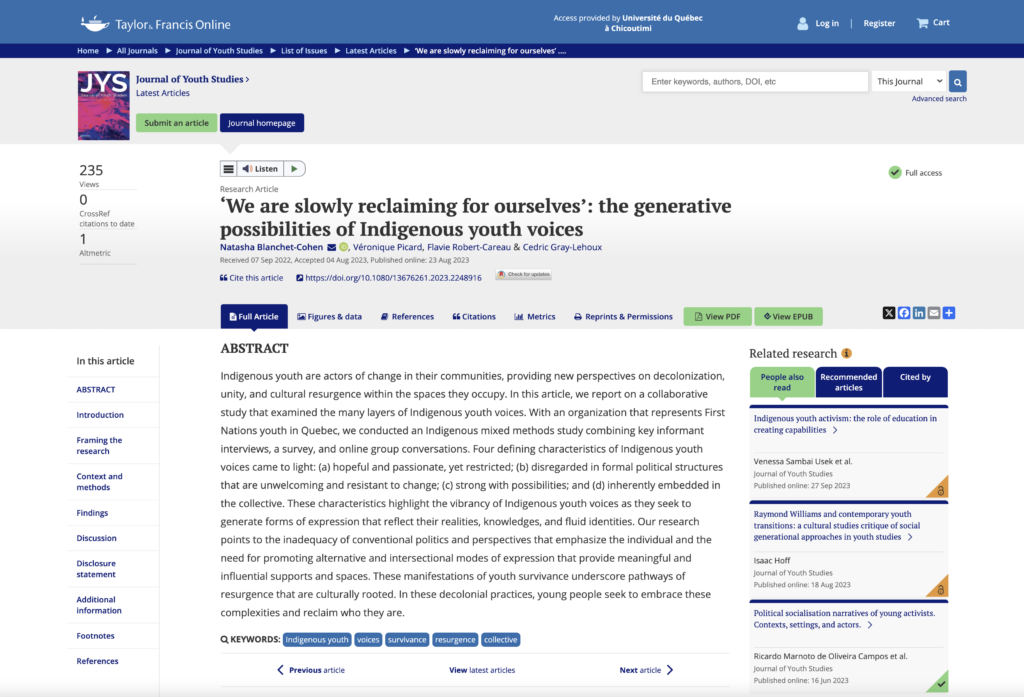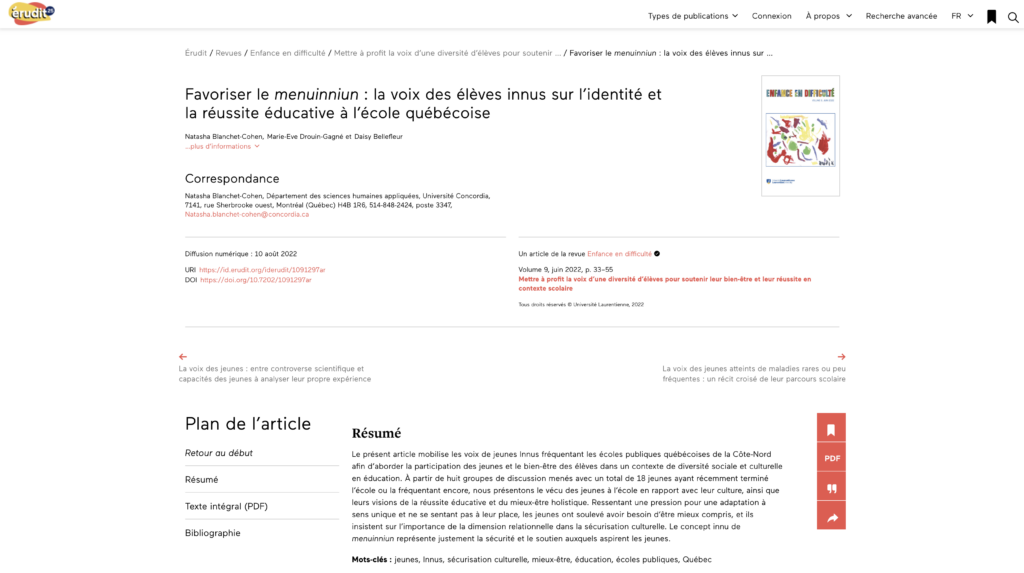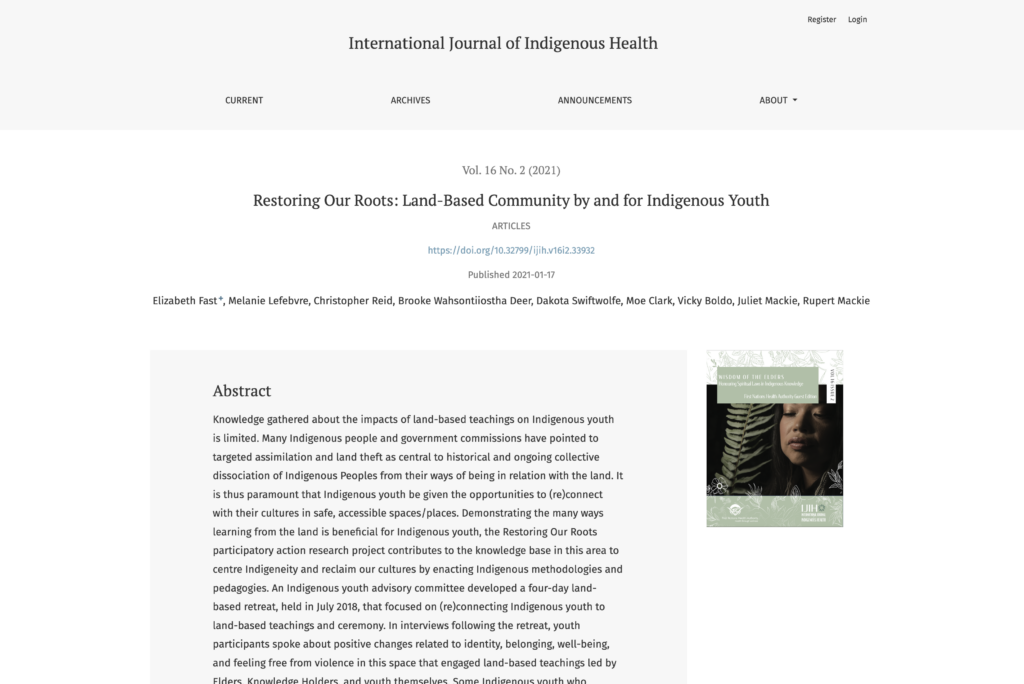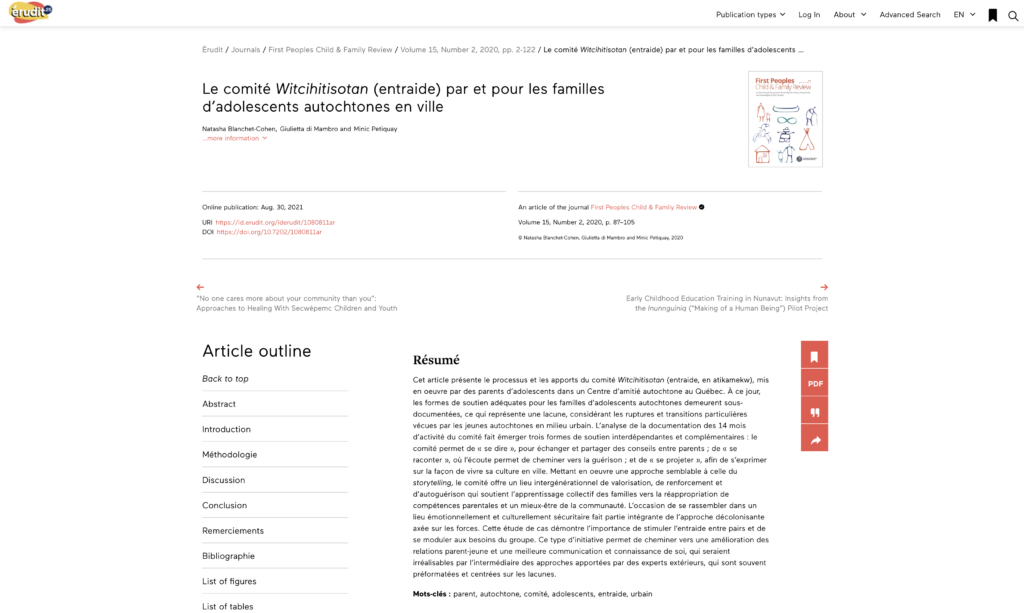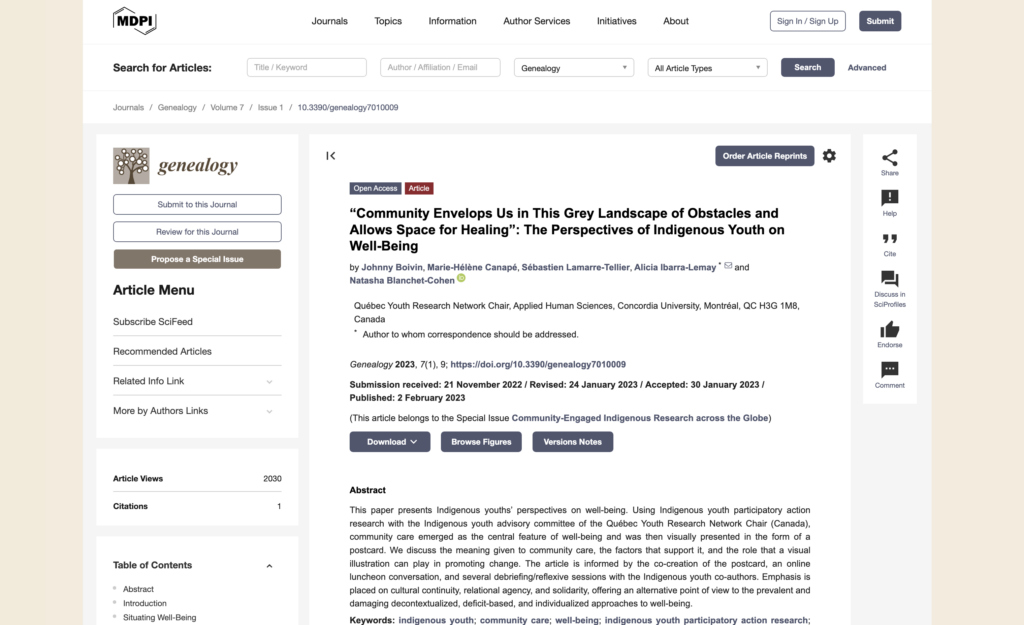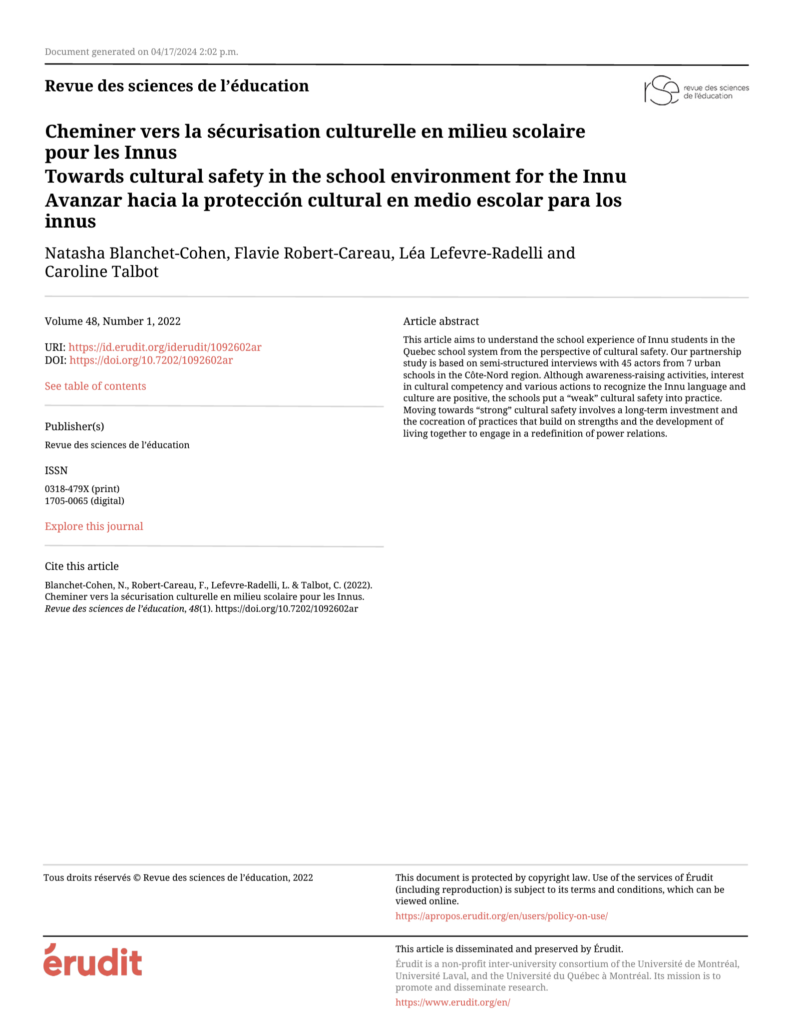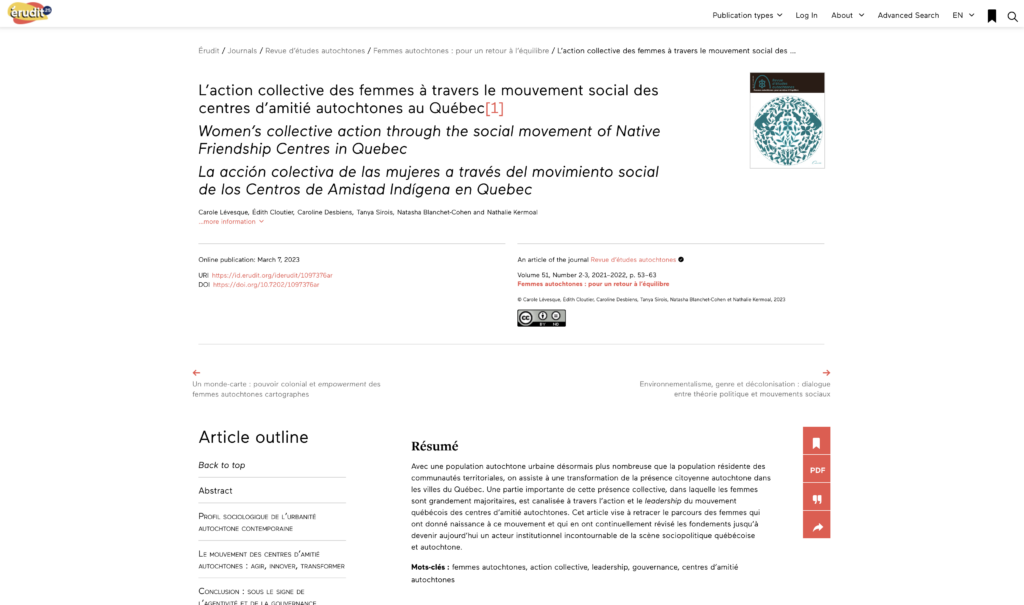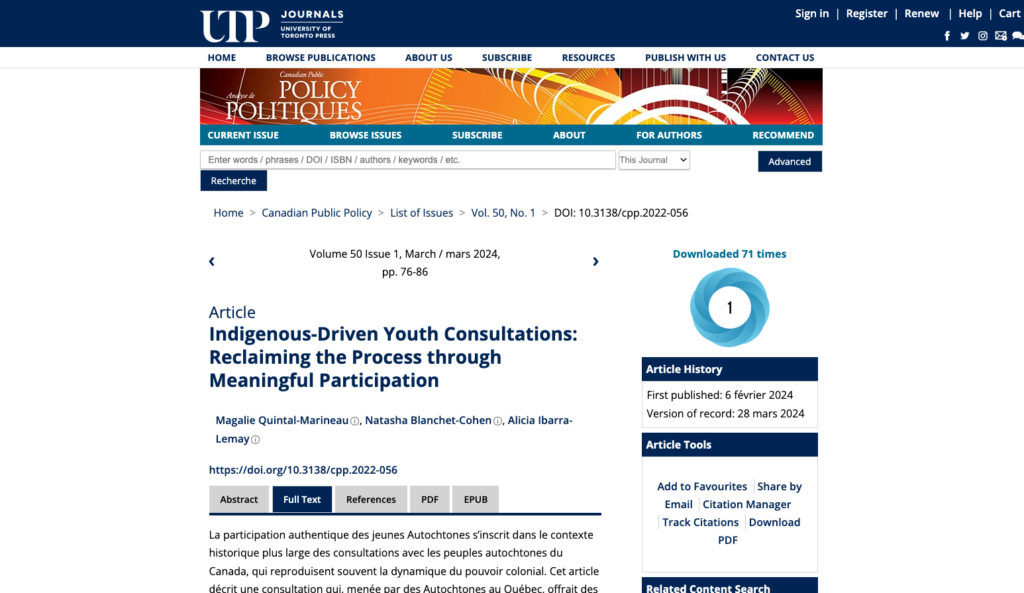Notice bibliographique
Esposito, T., Chabot, M., Delaye, A. et Trocmé, N. (2015). The Stability of Residential and Family Foster Care in Quebec, Canada: A Propensity Weighted Analysis. International Journal of Child and Youth Resilience, 3(1), 88-100.
Résumé
Objectives : This province-wide analysis examined factors most associated with changing out-of-home placements for 15,518 youth aged 10 to 17 at initial placement. This analysis allows the stability of residential and family foster care to be more precisely examined.
Methods : This analysis draws clinical administrative data from all of Quebec’s child protection agencies and the 2006 Canadian Census. Applying a method of quasirandomization using propensity weights that control for differences in the needs of youth placed in residential and family foster care at initial placement, multivariate logistic regression models were used to examine the risk of changing placements.
Results : At initial placement, youth manifesting severe behavioral problems are 431% more likely to be admitted to residential care and 113% more likely if they committed a crime prior to initial placement. While the analysis was weighted using propensity estimates, those placed in residential care are 15% more likely to experience a total of one placement change, 72% more likely to experience a total of two placement changes, and 87% more likely to experience at least three placement changes compared to their counterparts in family foster care. In addition, the risk of disruption increases in magnitude for those with multiple investigations, longer spells of out-of-home care, and who manifest high risk behaviors including youth criminality. Combined, these factors make these youth the most likely to experience placement disruption than any other youth placed in out-of-home care.
Implications: Given its’ inherent instability, residential care should be used only when other alternatives, such as family foster care or in home services, are not possible.
Hyperlien
https://in-car.ca/ijcar/issues/vol3/2015/Esposito_et_al_pp_88-100.pdfPublication du membre
Tonino EspositoNico Trocmé
Appartenance aux volets













